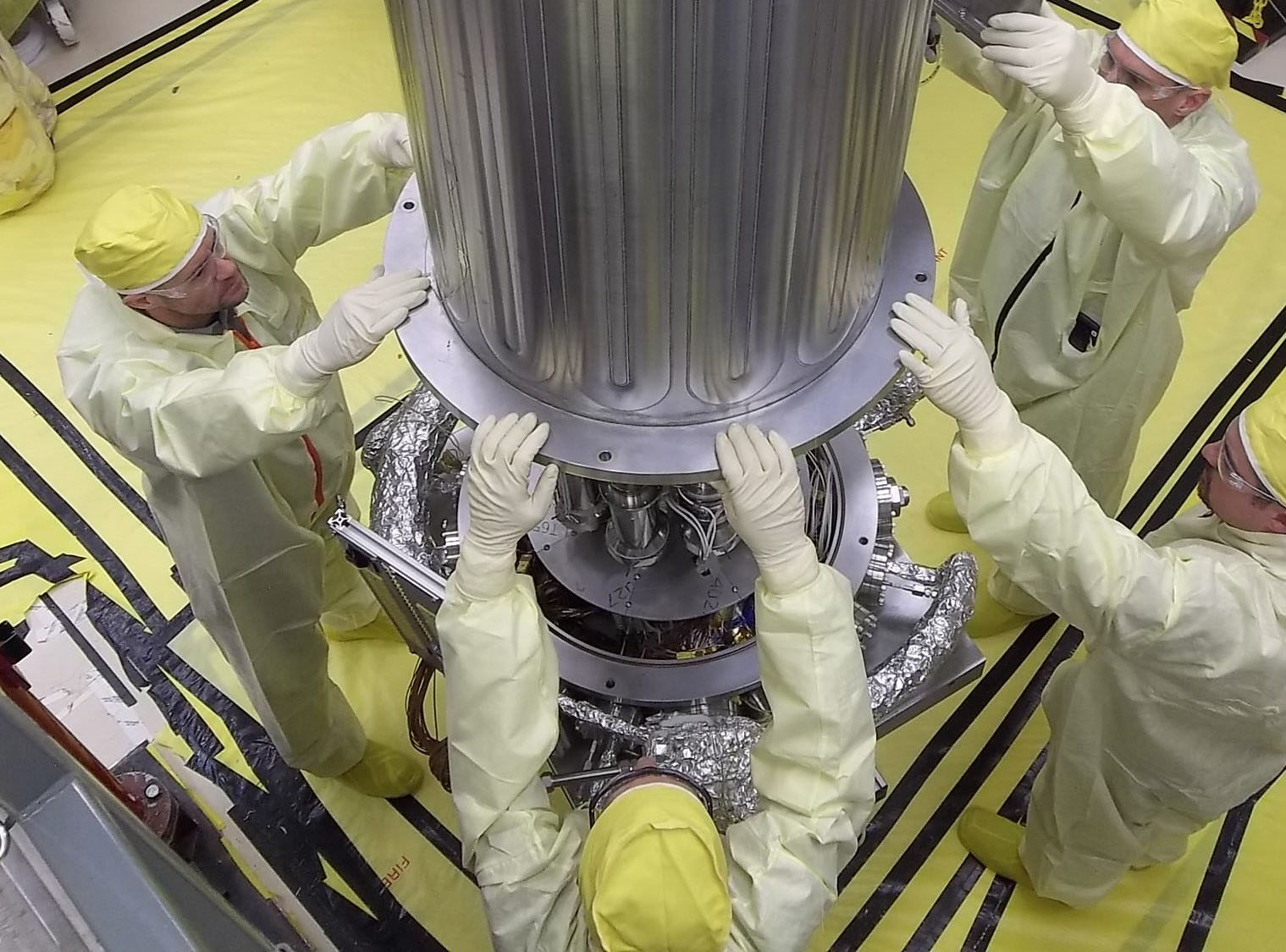Project KRUSTY: NASA wants to operate low-power nuclear reactors on the Moon and Mars
In the television show “The Simpsons,” Krusty is the name of a clown who usually treats everyone any way but nice. The US space agency NASA is using this name for its project for making exploration on the moon and other planets easier with the help of nuclear reactors (laymen would say “nuclear power plants”). KRUSTY stands for “Kilopower Reactor Using Stirling Technology” and has already proven reliable and safe in every way in various tests.
Technically, the energy generator consists of a core filled with uranium-235, which is approximately the same size as a roll of paper towels. The heat generated by the fission reactions is transferred by sodium tubes and converted into electrical energy in high efficiency Stirling motors. In this way, KRUSTY can generate ten kilowatts of electrical power, enough for several households – and is maintenance-free for at least ten years. This possibility is of interest both on the Moon, where nights can last up to two weeks, and also on Mars, where the generation of solar power is significantly less efficient than on the Earth. Consequently, four KRUSTY units would be enough for establishing a base on Mars. Smaller 1 kW models could be used on rovers.
Lead engineer Marc Gibson says: “The Kilopower technology gives us the ability to explore the shadowed craters of the moon. When we start sending astronauts for long stays on the Moon and Mars, we’re going to need a new kind of power source like this.”

